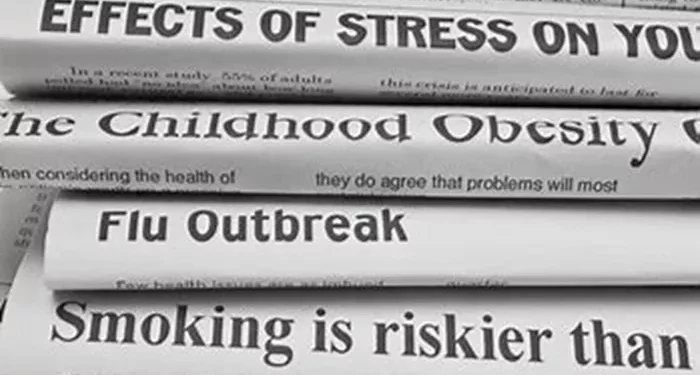A toxic job can make every workday feel unbearable. It drains your energy, affects your mental health, and even spills over into your personal life. But how do you know if your job is truly toxic? A toxic work environment is more than just occasional stress or a bad day. It is a place where negativity, poor management, bullying, or unreasonable demands are constant. You might feel undervalued, overworked, or even humiliated. Colleagues or supervisors may engage in gossip, favoritism, or outright harassment. The atmosphere feels heavy, and no matter how hard you try, things never seem to improve.
Signs You Are in a Toxic Job
Recognizing the signs of a toxic job is the first step toward making a decision. If you dread going to work every morning, that is a red flag. Constant anxiety, sleep problems, or physical symptoms like headaches could mean your job is harming your health. Another sign is if you feel like your efforts are never appreciated. Toxic workplaces often have poor communication, where feedback is either nonexistent or delivered in a harsh, unconstructive way. You might also notice high turnover rates—if people keep leaving, there is likely a deeper problem.
The Impact on Mental and Physical Health
Staying in a toxic job can have serious consequences. Chronic stress from a hostile work environment can lead to burnout, depression, or anxiety disorders. Over time, this stress weakens your immune system, making you more prone to illnesses. You might also develop unhealthy coping mechanisms, such as overeating, smoking, or drinking too much. Relationships outside work can suffer too. If you are always exhausted or irritable, your family and friends will notice. The longer you stay, the harder it becomes to recover. Your well-being should never be sacrificed for a paycheck.
Financial and Career Considerations
Quitting a job is a big decision, especially if you rely on the income. Before making any moves, assess your financial situation. Do you have savings to support yourself while looking for another job? Can you cut back on expenses? Sometimes, staying a little longer while searching for a new role is the practical choice. However, if the job is severely affecting your health, leaving without another offer might be necessary. Think about your career growth too. A toxic workplace rarely offers opportunities for advancement or skill development. Staying too long could stall your professional progress.
Weighing the Pros and Cons
Making a list of pros and cons can help clarify your thoughts. On one side, write down what you gain from staying—salary, experience, or maybe a good reference. On the other side, note the emotional and physical costs. If the negatives outweigh the positives, it might be time to leave. Consider whether things could improve. Have you tried addressing the issues with management? Sometimes, speaking up leads to changes. But if nothing changes despite your efforts, waiting longer may not help.
Preparing to Leave
If you decide to quit, planning is key. Start by updating your resume and reaching out to your network. Let trusted contacts know you are looking for new opportunities. Use job search platforms and consider seeking help from a career coach. If possible, secure another job before resigning. This reduces financial stress. However, if your workplace is severely damaging your health, leaving immediately might be the best choice. In that case, ensure you have a backup plan, whether it is freelance work, part-time jobs, or support from family.
How to Resign Professionally
Even if your job is toxic, resigning professionally protects your reputation. Give proper notice, usually two weeks, unless your situation requires an immediate exit. Write a polite resignation letter, keeping it brief and neutral. Avoid burning bridges—you might need references in the future. If asked for an exit interview, be honest but diplomatic. Focus on constructive feedback rather than venting frustration. This leaves a positive impression and maintains professional relationships.
Coping After Leaving
Leaving a toxic job can bring relief, but it may also come with mixed emotions. You might feel guilty, anxious about the future, or even doubt your decision. This is normal. Give yourself time to recover. Engage in activities that restore your energy, whether it is exercise, hobbies, or spending time with loved ones. If needed, seek therapy to process your experience. Use this time to reflect on what you want in your next job. Identify red flags early to avoid another toxic environment.
Finding a Healthier Workplace
Your next job should align with your values and well-being. Research companies thoroughly before applying. Look at employee reviews on sites like Glassdoor. During interviews, ask about company culture, work-life balance, and how conflicts are handled. Trust your instincts—if something feels off, it probably is. A supportive workplace values transparency, respect, and employee growth. Do not settle for less than you deserve.
When Staying Might Be the Only Option
In some cases, leaving immediately is not possible. Financial obligations, lack of alternatives, or personal circumstances might force you to stay. If so, focus on protecting your mental health. Set clear boundaries—do not take work home, and avoid engaging in office drama. Find support through friends, family, or professional counseling. Use your time outside work to recharge and plan your next steps. Even in a bad situation, small actions can help you stay resilient.
Long-Term Lessons from a Toxic Job
A toxic job can teach you valuable lessons. It clarifies what you will no longer tolerate and helps you recognize warning signs early. You learn the importance of self-advocacy and setting boundaries. These lessons make you stronger and more selective in future opportunities. Every experience, no matter how difficult, contributes to your growth.
Conclusion
Deciding whether to quit a toxic job is deeply personal. Only you know how much it is affecting you. Prioritize your health and happiness—no job is worth sacrificing them. If leaving is the right choice, plan carefully and move forward with confidence. If staying, find ways to cope while working toward an exit. Remember, your career should support your life, not destroy it. You deserve a workplace where you feel respected, valued, and at peace.
Related topics:
How Long Should You Work at a Job You Hate?
How to Quit a Job You Hate Gracefully?
How Do You Tell if a Job Wants You to Quit?





















